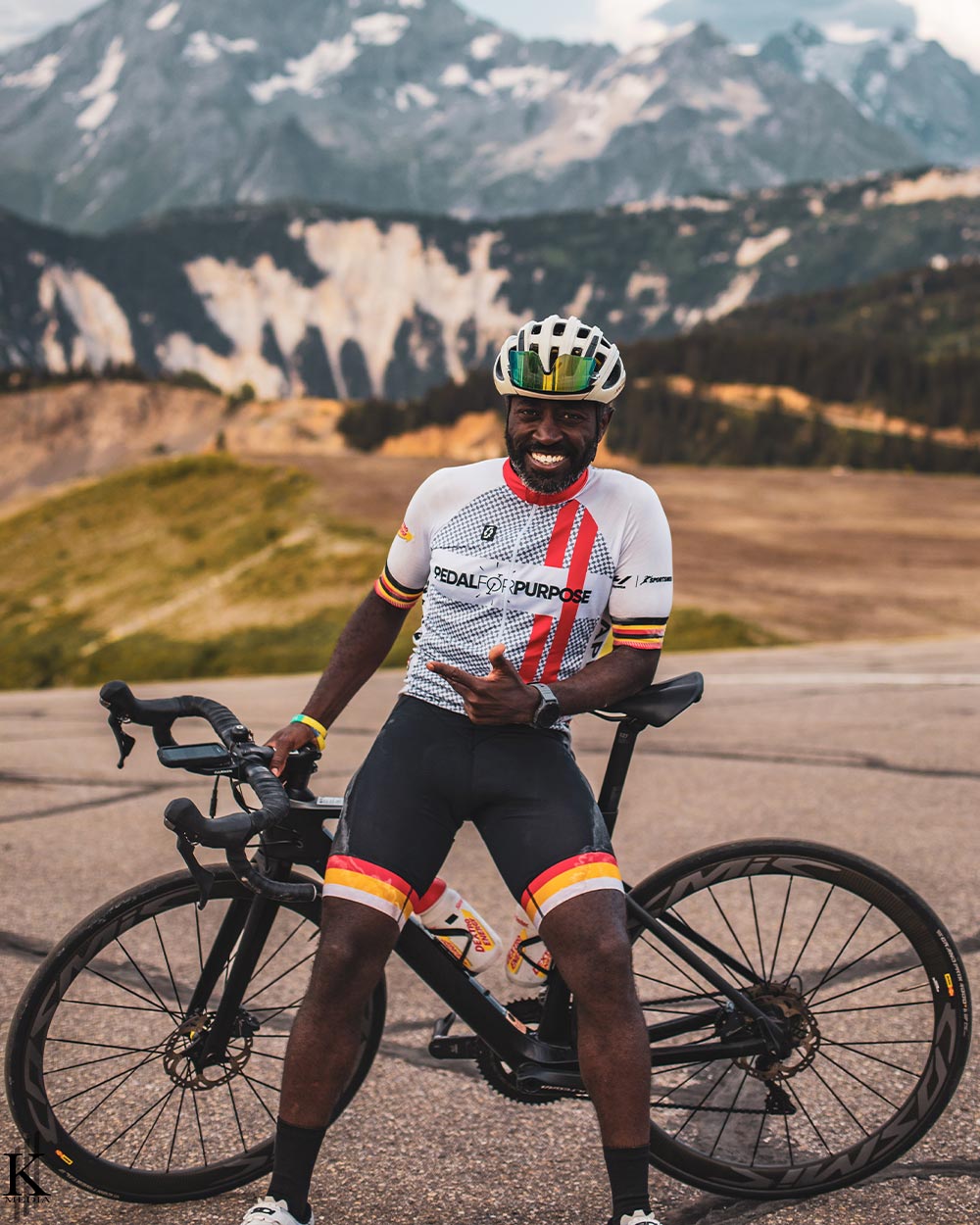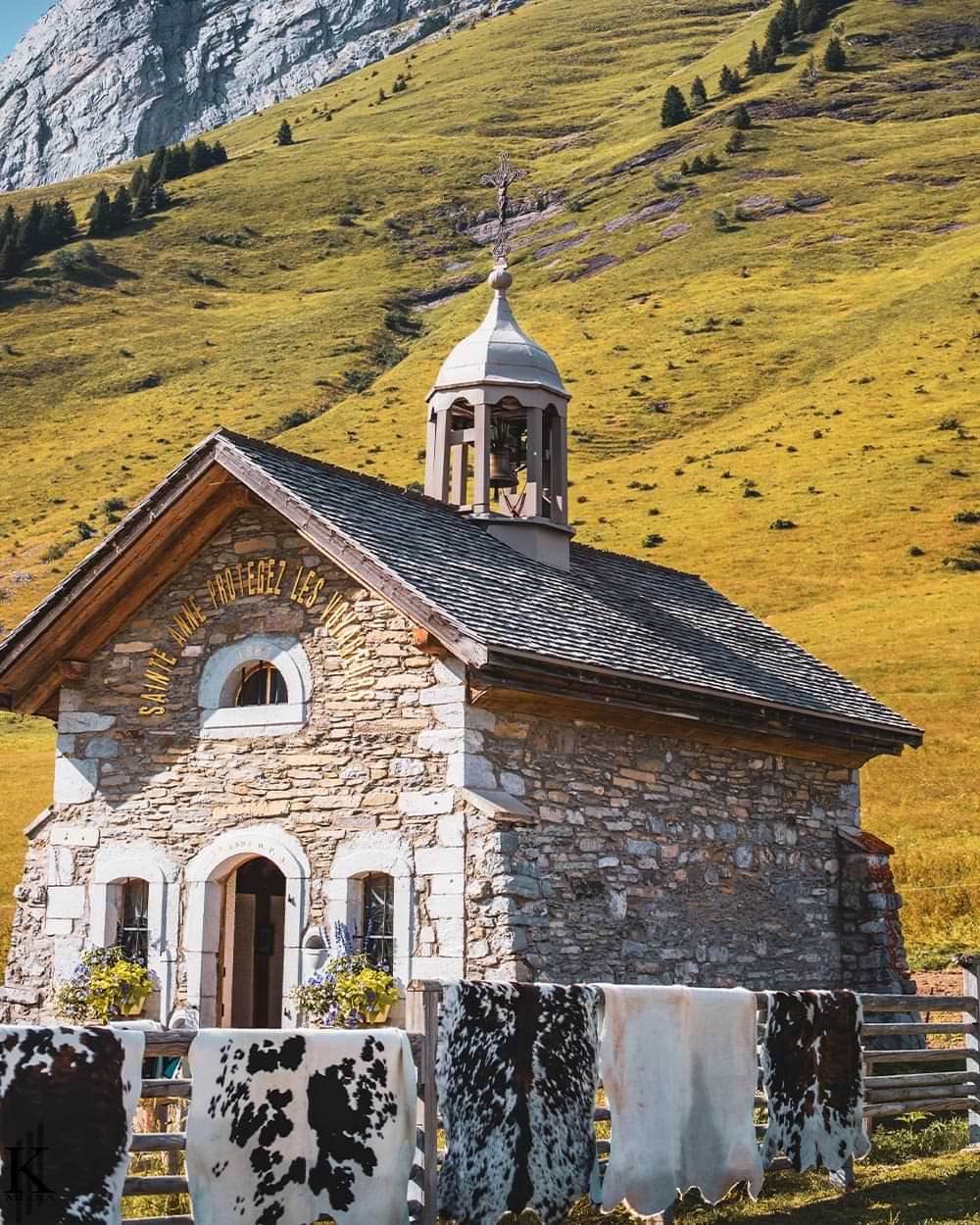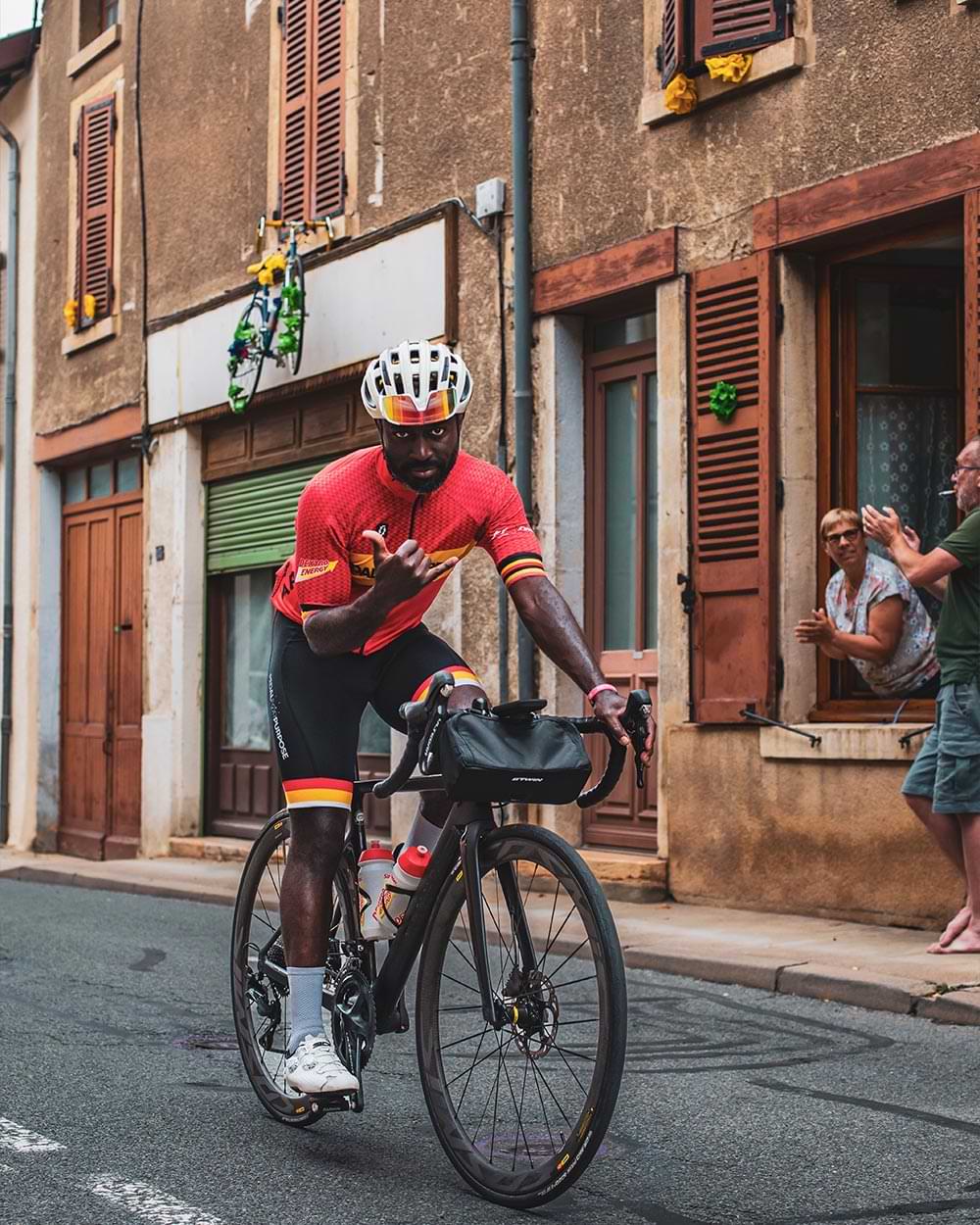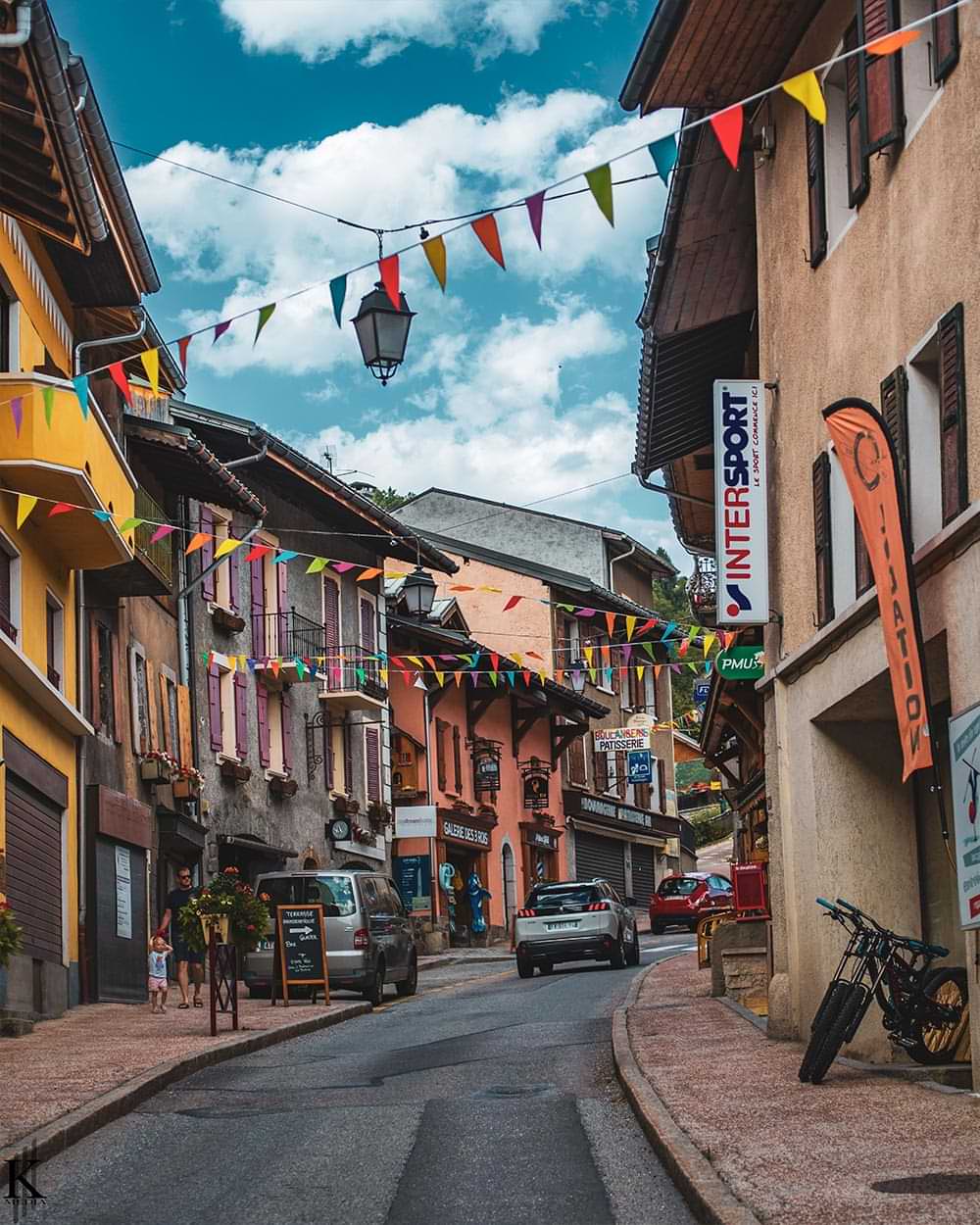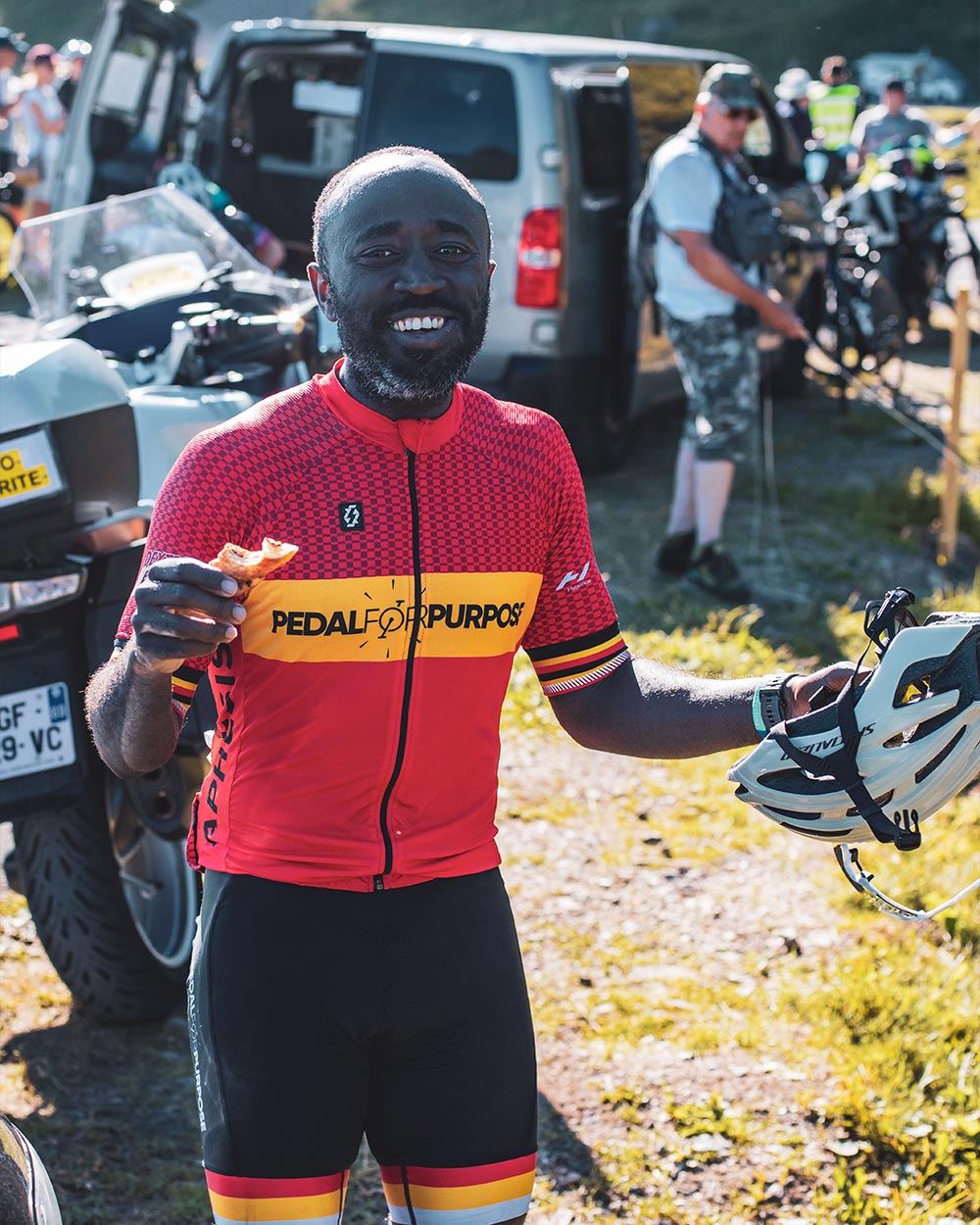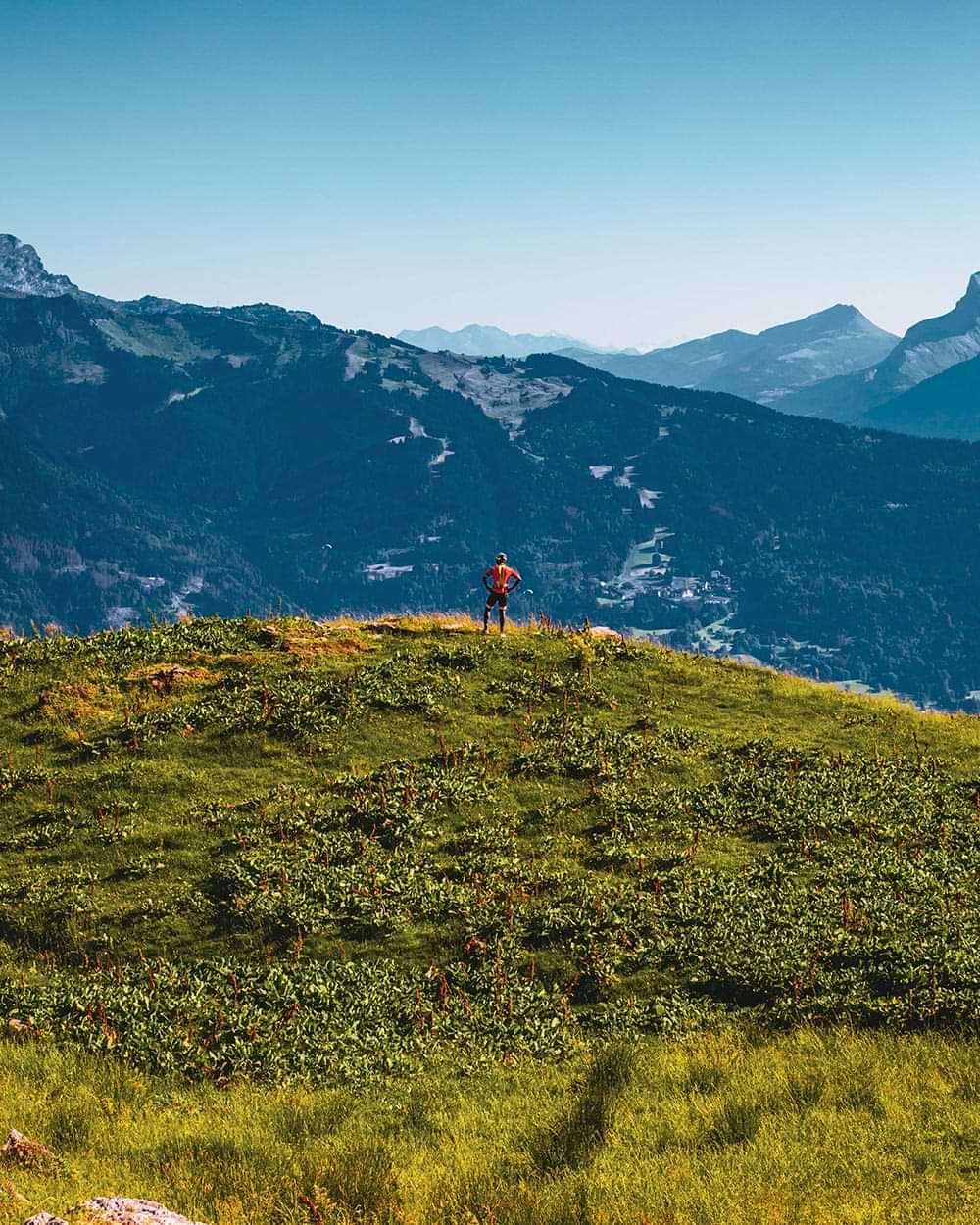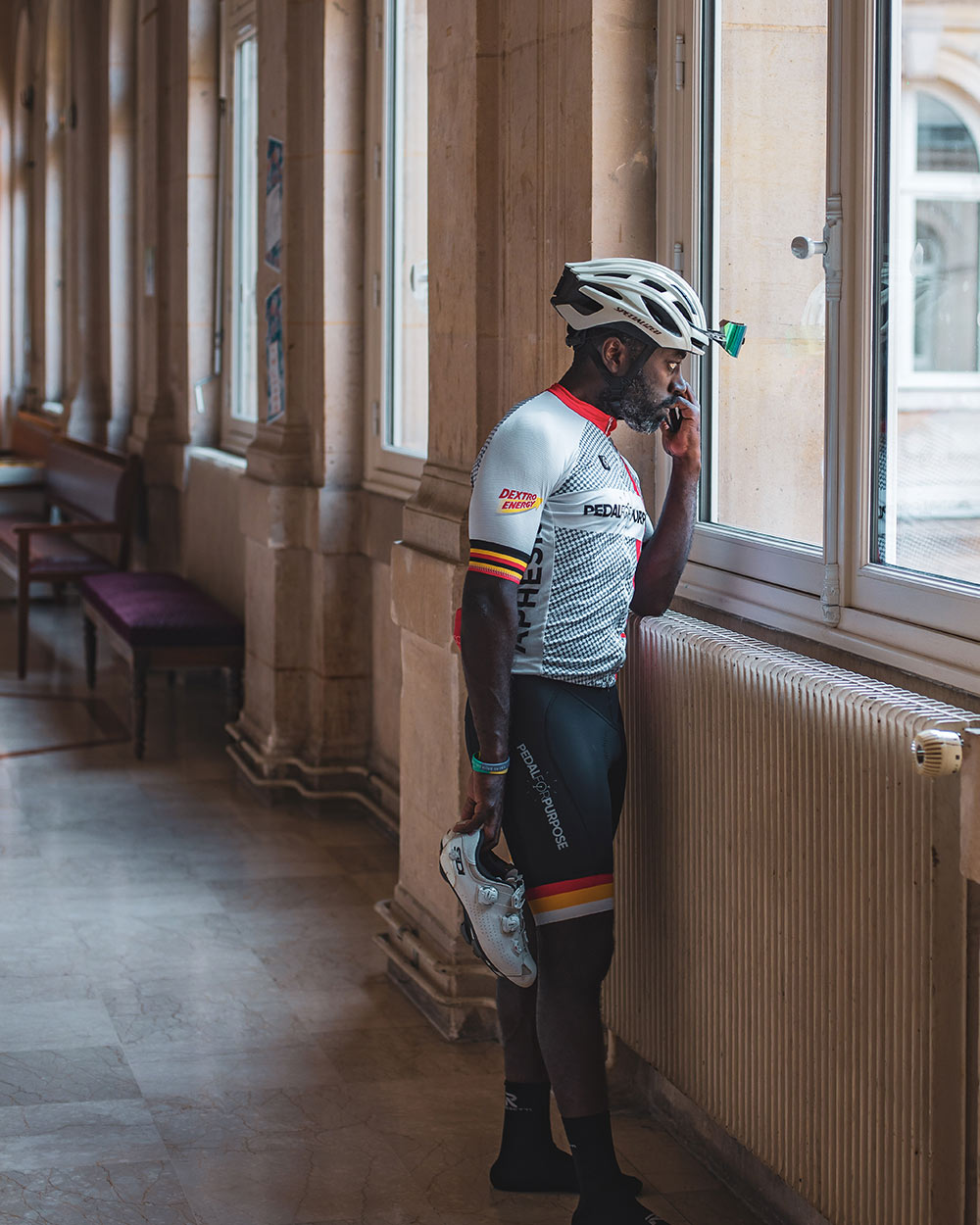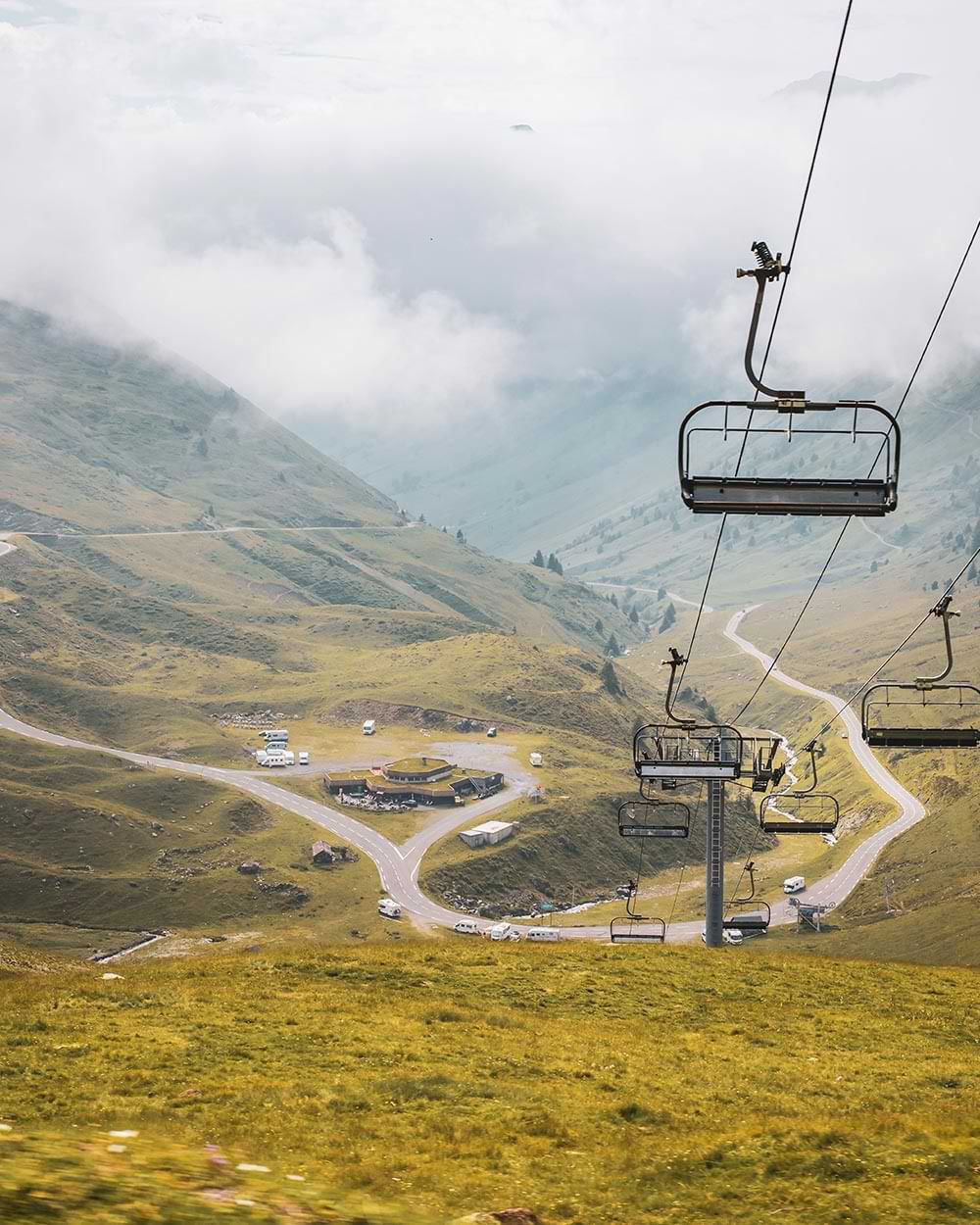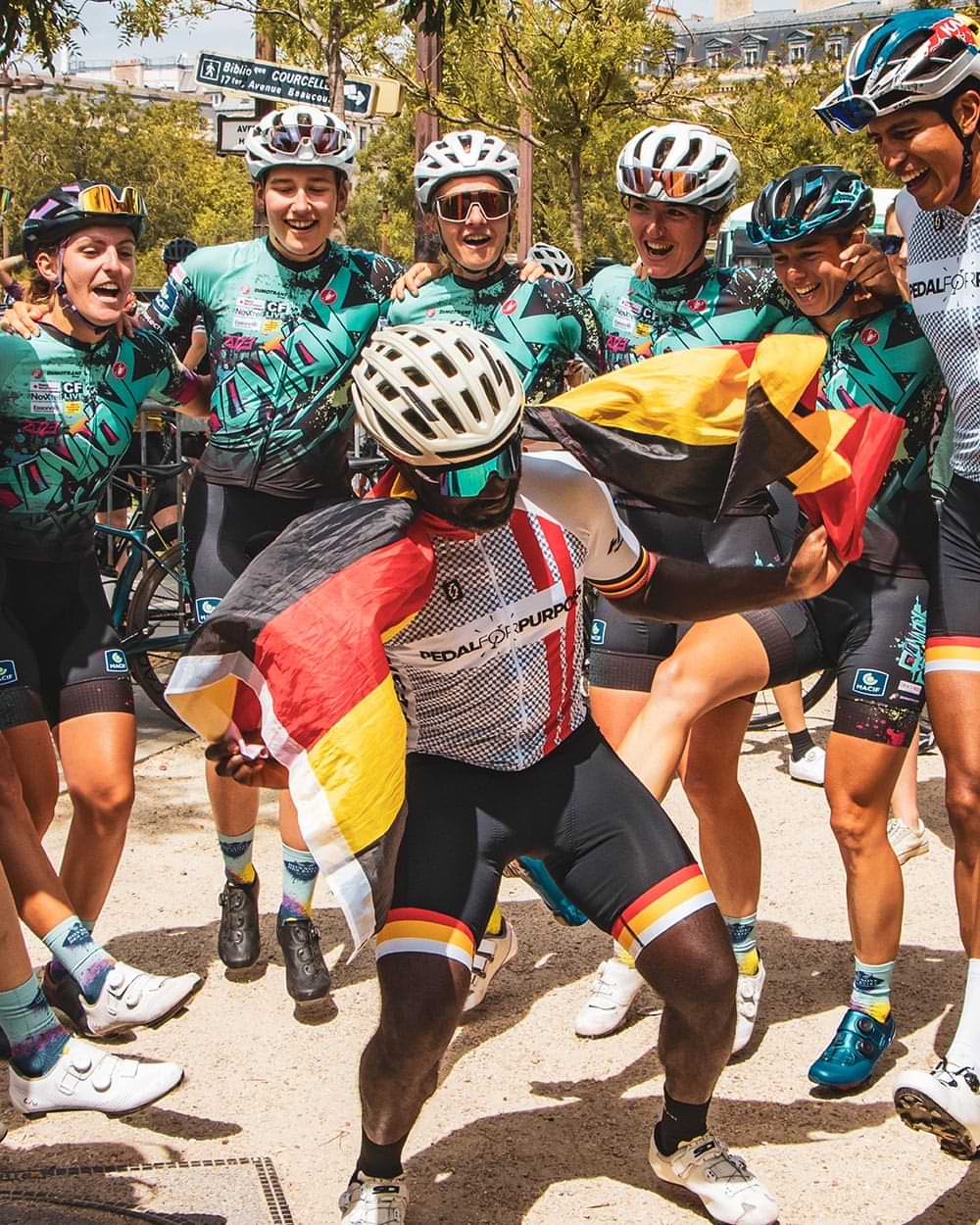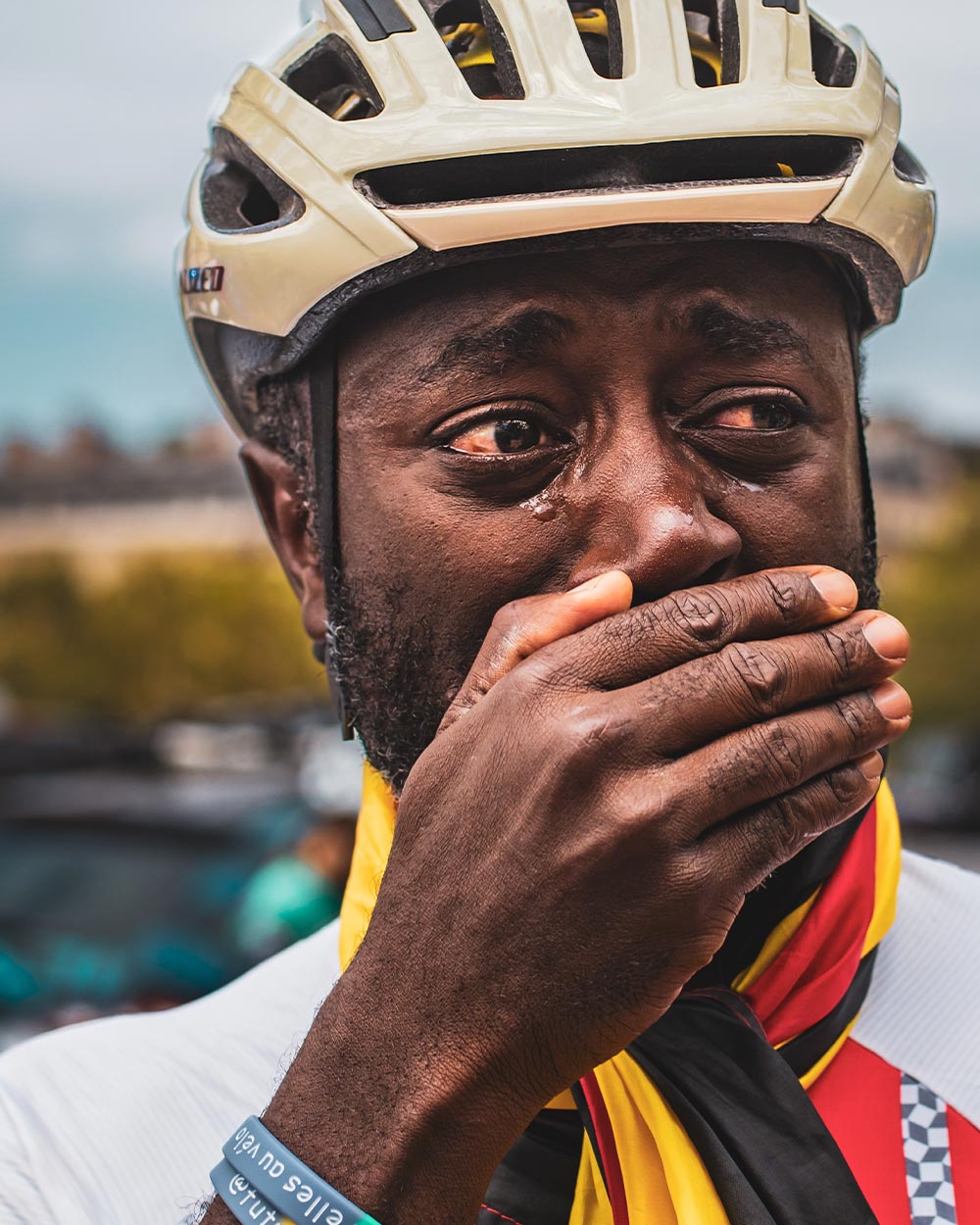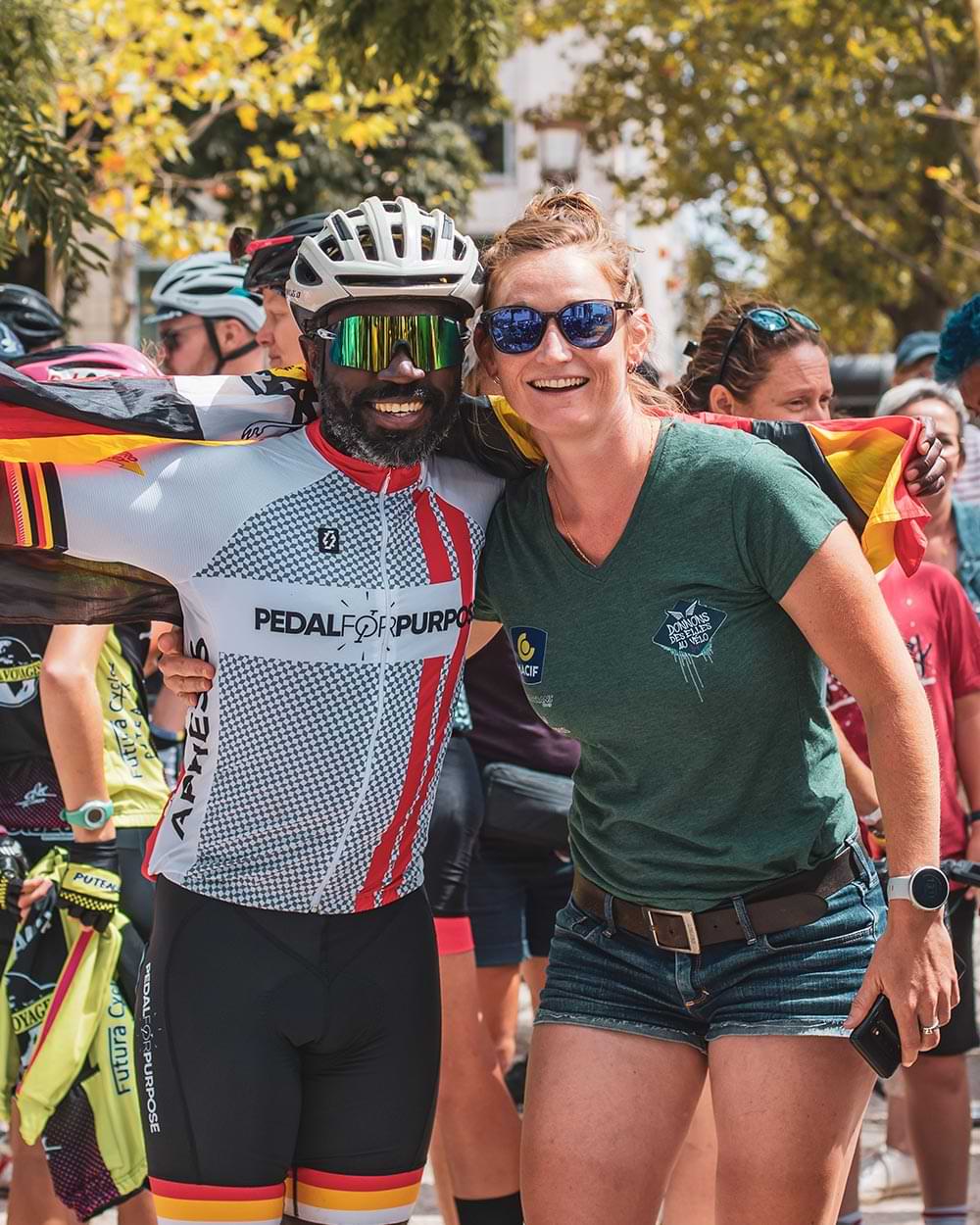Tour de Force

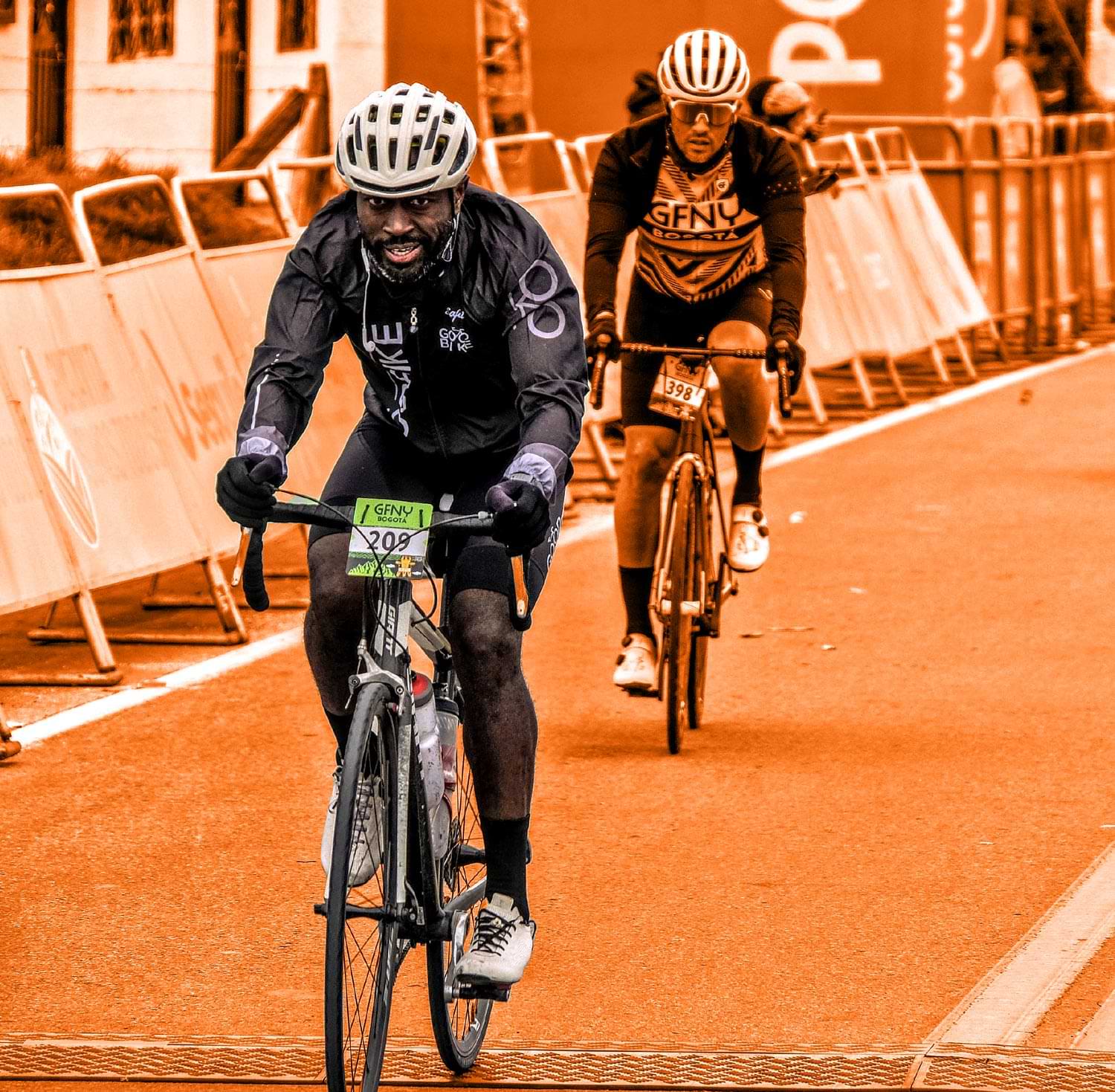
Muyambi Muyambi ’12 is tackling the most famous cycling route in the world — and he’s doing it to forward a mission he started at Bucknell
by Michelle Hamilton
photo courtesy of GFNY Bogotá
 n July — as this magazine was heading to press — Muyambi Muyambi ’12 was pushing the limits of his physical strength, mental fortitude and tolerance for pain. He was midway through one of the world’s most notoriously challenging endurance endeavors — something only the world’s fittest athletes ever attempt: cycling the Tour de France route.
n July — as this magazine was heading to press — Muyambi Muyambi ’12 was pushing the limits of his physical strength, mental fortitude and tolerance for pain. He was midway through one of the world’s most notoriously challenging endurance endeavors — something only the world’s fittest athletes ever attempt: cycling the Tour de France route.
On July 2, Muyambi set off on his quest to finish the 2,115-mile, 21-day stage event by trailing the elite racers by one day. While he’s not an official competitor, he is covering the exact race course — which means pedaling 100-plus miles a day, over grueling mountainous terrain, in sweltering heat for three weeks. It’s an extreme test of athleticism that demands equal parts physicality and tenacity.
Muyambi’s ambition is rooted in his long-standing commitment to Cycle Connect, a nonprofit he founded in 2012 as a student at Bucknell. What started as a club — initially called Bicycles Against Poverty — has evolved into a full-fledged organization (thanks to Bucknellian support, see “Bucknell Roots,”) that has provided thousands of bikes to Ugandan farmers so they can transport their products to market and earn an income.
Muyambi Muyambi ’12 is tackling the most famous cycling route in the world — and he’s doing it to forward a mission he started at Bucknell
by Michelle Hamilton
photo courtesy of GFNY Bogotá
 n July — as this magazine was heading to press — Muyambi Muyambi ’12 was pushing the limits of his physical strength, mental fortitude and tolerance for pain. He was midway through one of the world’s most notoriously challenging endurance endeavors — something only the world’s fittest athletes ever attempt: cycling the Tour de France route.
n July — as this magazine was heading to press — Muyambi Muyambi ’12 was pushing the limits of his physical strength, mental fortitude and tolerance for pain. He was midway through one of the world’s most notoriously challenging endurance endeavors — something only the world’s fittest athletes ever attempt: cycling the Tour de France route.
On July 2, Muyambi set off on his quest to finish the 2,115-mile, 21-day stage event by trailing the elite racers by one day. While he’s not an official competitor, he is covering the exact race course — which means pedaling 100-plus miles a day, over grueling mountainous terrain, in sweltering heat for three weeks. It’s an extreme test of athleticism that demands equal parts physicality and tenacity.
Muyambi’s ambition is rooted in his long-standing commitment to Cycle Connect, a nonprofit he founded in 2012 as a student at Bucknell. What started as a club — initially called Bicycles Against Poverty — has evolved into a full-fledged organization (thanks to Bucknellian support, see “Bucknell Roots,”) that has provided thousands of bikes to Ugandan farmers so they can transport their products to market and earn an income.
His view changed in 2012 when Muyambi and Molly Burke ’10 cycled from California to Boston to raise funds for Cycle Connect. As he pedaled day after day, Muyambi began to notice the unexpected mood-altering effects of his effort. “It felt like freedom,” he says. “It was joy.”
After that cross-country journey, Muyambi, who double-majored in civil engineering and economics, settled into a career (first as an engineer, then as an investment officer) and kept riding. He hooked up with cycling clubs during the week and logged hours in the saddle every weekend.
As his enthusiasm grew, he became transfixed by coverage of the Tour de France each July. He was fascinated by the elite cyclists and their ability to attack big climbs in epic heat, day after day. “I was baffled by what the human body could do,” says Muyambi, who works at the International Finance Corporation in Washington, D.C., and sits on the board of Cycle Connect.
In 2022 when he started contemplating another fundraising effort for Cycle Connect, he decided it was time to do something significant. “I wanted to put my body on the line, to show my commitment,” he says. “Cycling the Tour route seemed perfect.”
He began training in earnest in January 2023 with a strong fitness base. But he knew a task of this magnitude required next-level preparation. He reached out to Kelly Desharnis Catale ’12, an elite mountain biker, for advice. Catale connected Muyambi with Benjamin Turits ’03, a former professional cyclist who now coaches endurance athletes. Turits ensured Muyambi departed for France physically ready for the challenge ahead.
When he needs to dig deep, Muyambi said he’ll channel inspiration from Cycle Connect’s farmers. “Our clients have a vision,” he says. “They ask, ‘What is it that I want to achieve?’ and then they work to achieve it. I’ll follow their lead.”
Bucknell Roots
Muyambi Muyambi ’12 credits his fellow Bucknell alumni for turning Cycle Connect into the successful organization it is today. Molly Burke ’10, who served as CEO from 2012 to 2022, grew the nonprofit to serve 12,000 farmers — half of whom are women — increasing their incomes by 30%. Five Bucknellians currently sit on the board of directors: chairman Bill Morrow ’70, Erick Davis ’01, Charlie Kreitler ’12 as well as Muyambi and Burke.
Prepared to go the distance

The Connector
Muyambi Muyambi ’12 and elite mountain biker Kelly Desharnais Catale ’12 knew of each other while students at Bucknell, but their connection deepened when Muyambi got more passionate about cycling after graduating and would reach out for training advice.
The Coach
Benjamin Turits ’03, a former elite cyclist and the founder of the Endurance Collective, wanted to elevate Muyambi’s fitness without risking injury or burnout. Turits put him on a structured 12-week program that included interval work during the week, back-to-back long rides on the weekend, and focused hill training in Shenandoah National Park.
The Sponsor
Bill Morrow ’70 learned about Cycle Connect back in 2014 when Bucknell Magazine first wrote about Muyambi and Molly Burke ’10. Morrow, a senior adviser at Integral Venture Partners in the U.K., wanted to get involved. He became the organization’s board chairman, a post he’s held for seven years. Morrow is covering 50% of Muyambi’s expenses; Muyambi and others are covering the other half so 100% of the funds raised will go directly to Cycle Connect.
The Connector
Muyambi Muyambi ’12 and elite mountain biker Kelly Desharnais Catale ’12 knew of each other while students at Bucknell, but their connection deepened when Muyambi got more passionate about cycling after graduating and would reach out for training advice.
The Coach
Benjamin Turits ’03, a former elite cyclist and the founder of the Endurance Collective, wanted to elevate Muyambi’s fitness without risking injury or burnout. Turits put him on a structured 12-week program that included interval work during the week, back-to-back long rides on the weekend, and focused hill training in Shenandoah National Park.
The Sponsor
Bill Morrow ’70 learned about Cycle Connect back in 2014 when Bucknell Magazine first wrote about Muyambi and Molly Burke ’10. Morrow, a senior adviser at Integral Venture Partners in the U.K., wanted to get involved. He became the organization’s board chairman, a post he’s held for seven years. Morrow is covering 50% of Muyambi’s expenses; Muyambi and others are covering the other half so 100% of the funds raised will go directly to Cycle Connect.
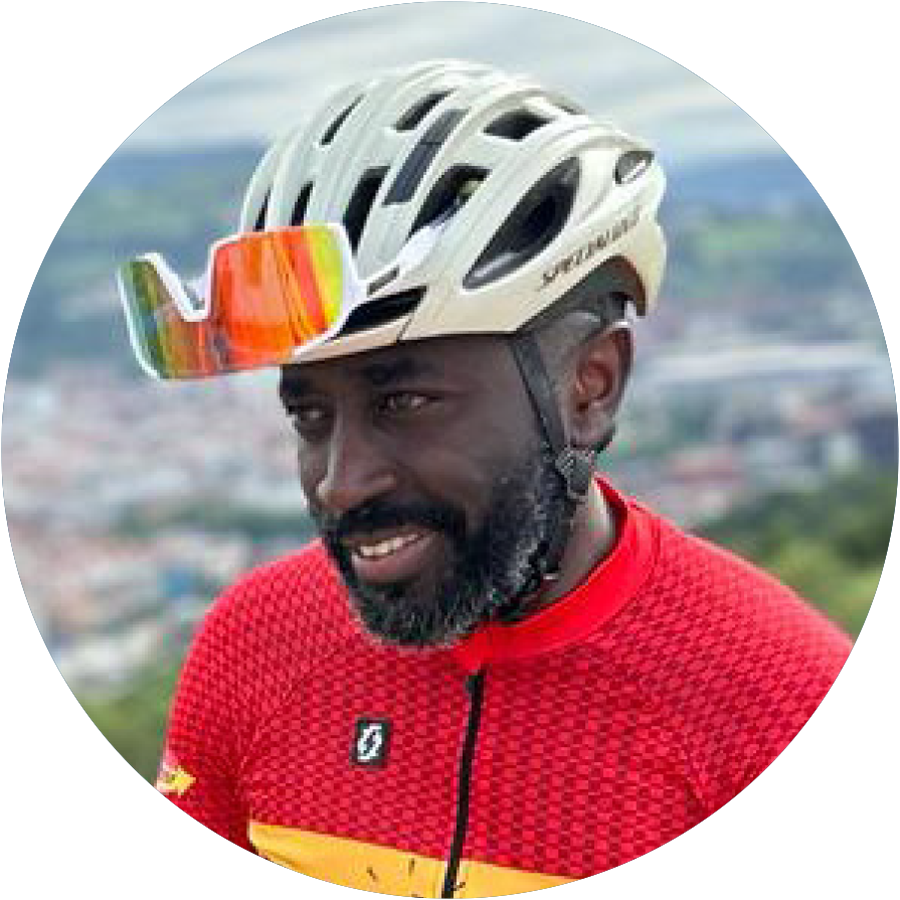
MUYAMBI
MUYAMBI VS. THE ELITES
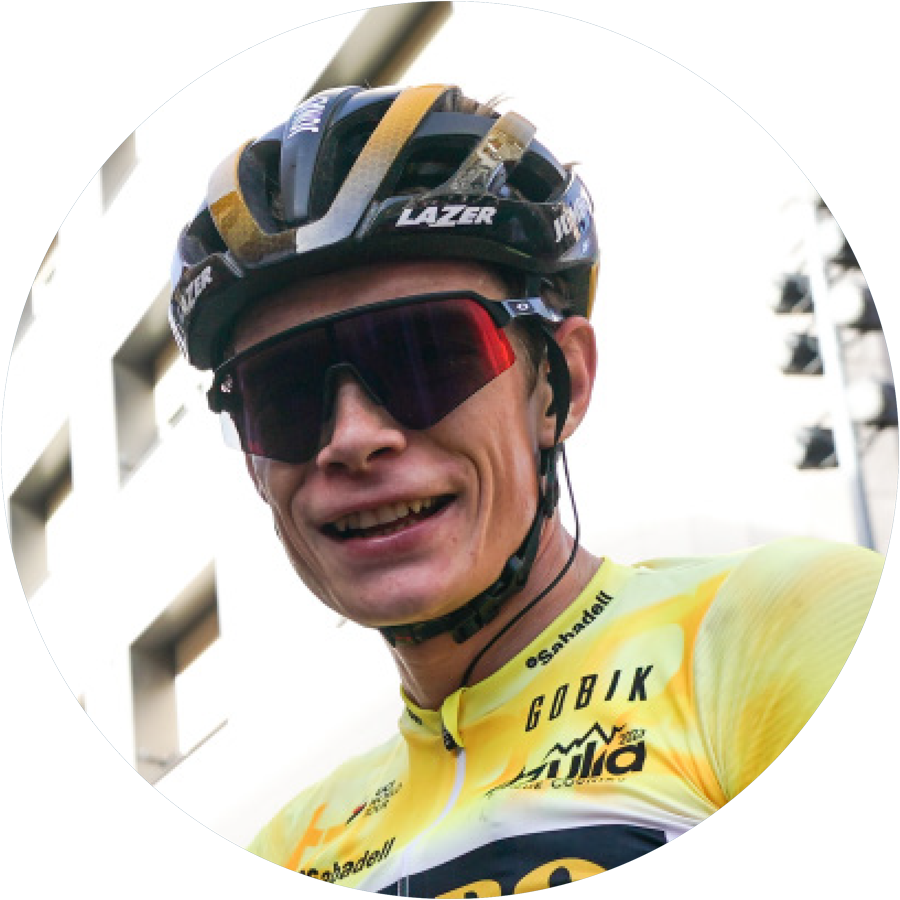
Jonas Vingegaard
$200,000
$554,000
MUYAMBI VS. THE ELITES

MUYAMBI

2022 & 2023 winner
Jonas Vingegaard
Earnings
$200,000
$554,000
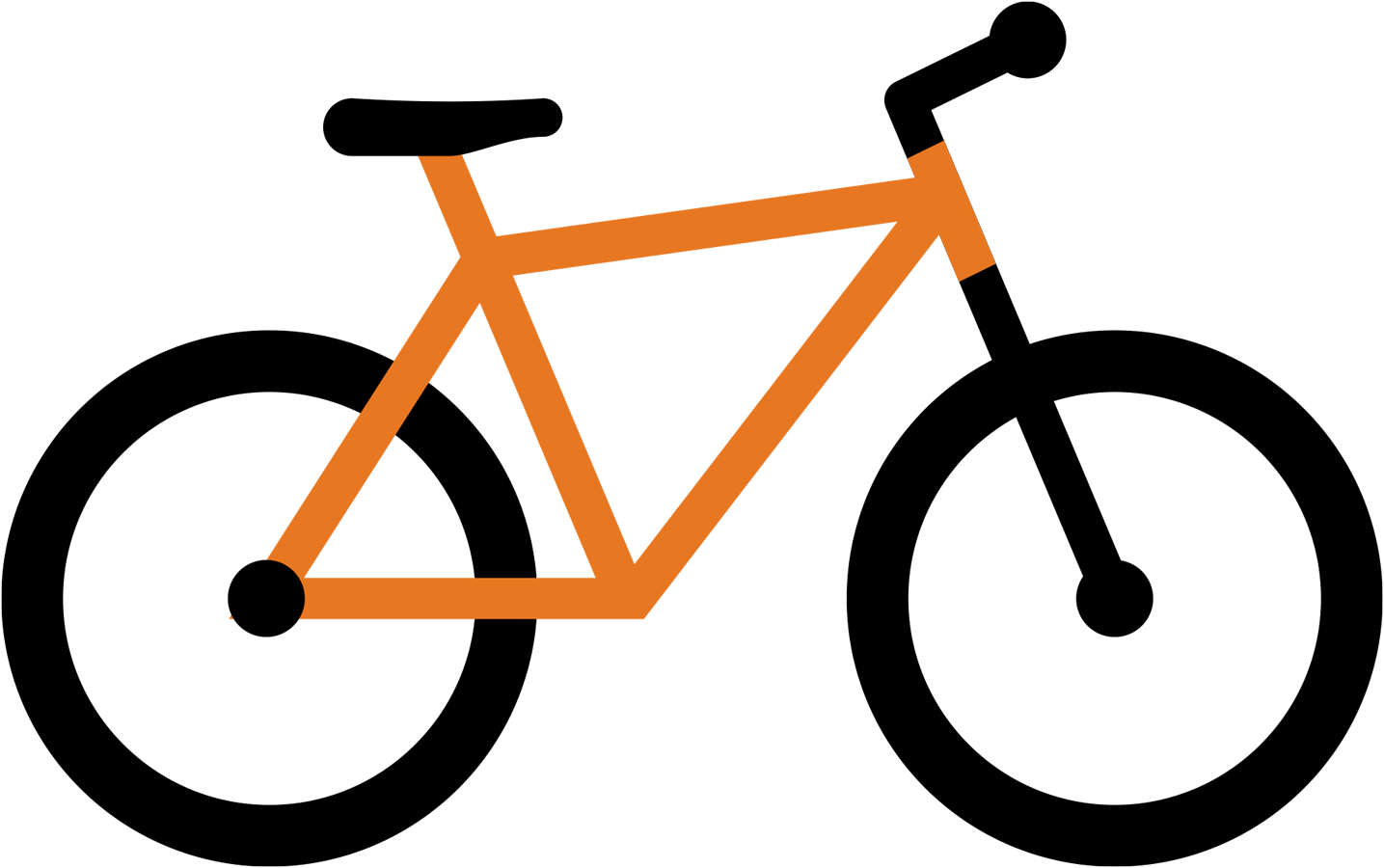 The Route
The Route
Longest Climb: 17.4 miles
Steepest Climb: 5,544 feet with a 7.7% grade
Total Feet Climbed: 180,728
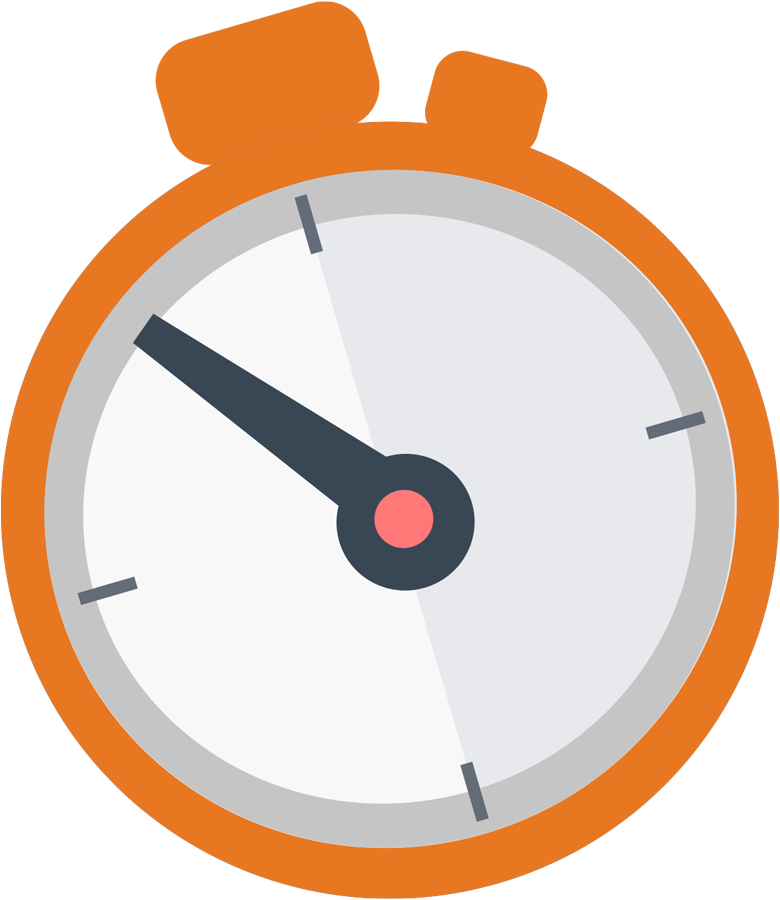 Time
Time
Average Miles Day: 100
Longest Day: 129 miles
 Stages
Stages
- 4 hilly
- 8 Mountain Climbs
- 1 individual time trial
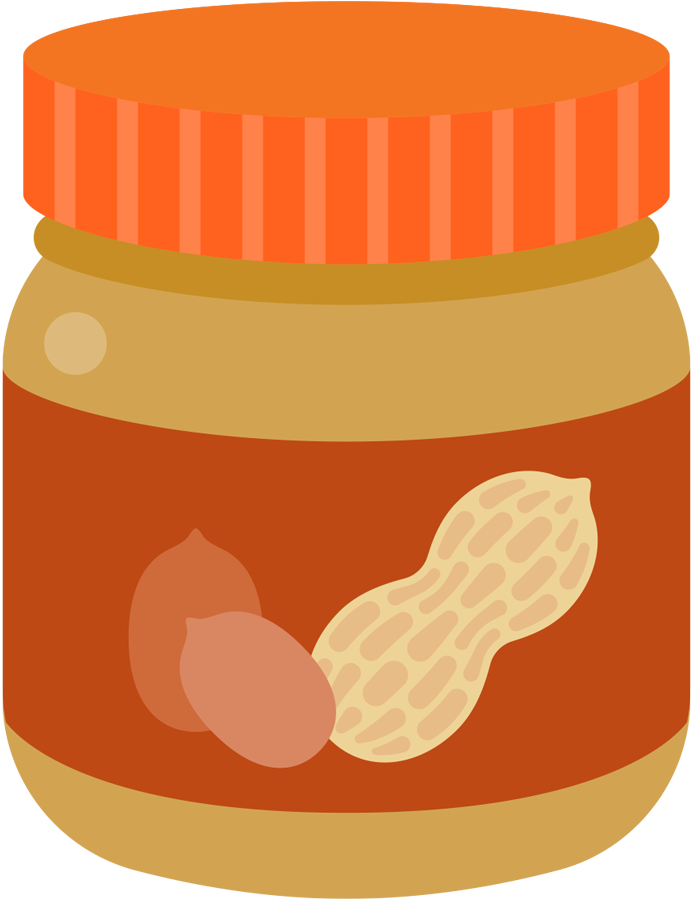 Fuel
Fuel
Daily Fluids: 240+ ounces
Muyambi’s Fave: Rice with Peanut Butter and Jelly
A Successful Finish
On July 25, Muyambi Muaymbi ’12 finished his epic adventure and completed the 21st stage of the 2,115-mile Tour de France route. How did it go?
photographs by Laurens Kiek
Biggest hiccup: “On day three, we had a car problem, and so I didn’t start the stage until 2 p.m., which meant I didn’t finish until 1 a.m. It was raining, and there was a lot of climbing. It was really tough.”
Most punishing stage: “Stage 17: Col de la Loze. The summit is above a ski resort at 2,304 meters. The pitch near the summit hits 24%, which is insane. My front tire looked like it was going to come off the ground. I contemplated getting off and walking. But I made it.”
Pleasant surprise: “I only had one flat tire the entire time, which is really incredible.”
Unexpected challenge: “I had two support people. I thought that would be enough, but I underestimated the work that goes into supporting a cyclist. The person who is driving has to drive the distance you are riding and then still has to drive to the next stage — and then park the van. We slept in a camper van, and it was hard to find parking for that. Sometimes we’d drive for an hour or two before we could find a parking spot. I had wanted to get eight hours of sleep a night, but I averaged four to five hours.”
Unexpected bonus: “A team of women cyclists was riding the route while we were there, so it was great to have their company and share information with them about Cycle Connect. We are having conversations about partnering on other fundraisers in the future.”
